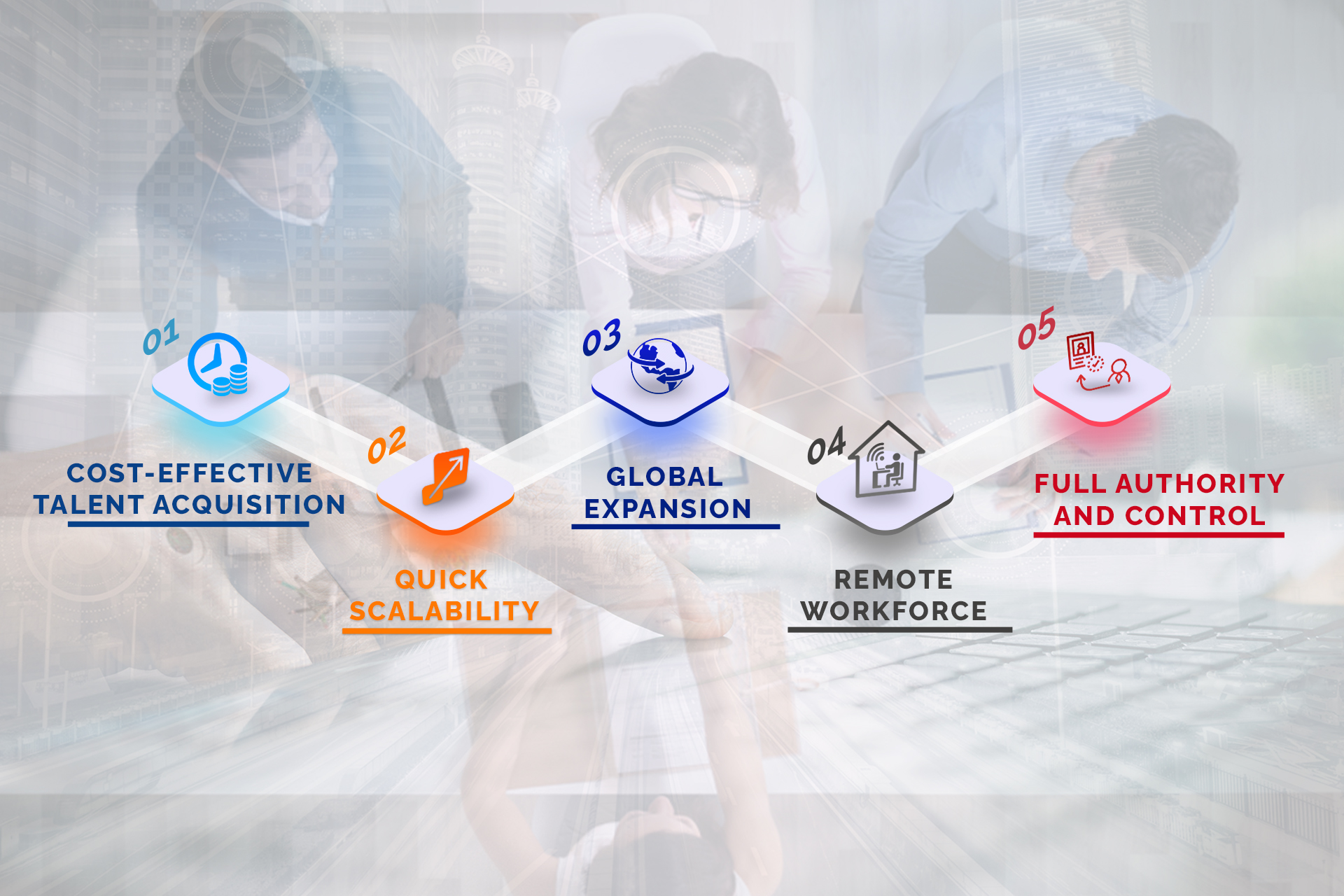The ROI of Offshore Development: A Global Perspective
By Admin
Is your business balanced to thrive in the global digital economy? As the demand for tech-driven solutions skyrockets, companies increasingly look beyond their local borders to meet their development needs. Offshore development, the practice of delegating tech-related projects to external teams in different geographical locales, has emerged as a compelling strategy. Countries like India, Ukraine, and the Philippines, known for their lower operational costs and rich talent pools, have become attractive offshore destinations.
According to a report by Deloitte, 59% of businesses globally are already outsourcing to cut costs, with a significant portion leveraging offshore development models. Furthermore, the global outsourcing market is expected to reach $405.6 billion by 2027, up from $92.5 billion in 2019, showcasing a trend gaining traction rapidly.
In this fiercely competitive IT landscape, offshore development ventures' Return on Investment (ROI) must be noticed. It's not merely about cost-saving; the broader picture encapsulates time-to-market acceleration, access to specialised skills, and the flexibility to navigate through the fluctuating demands of modern projects. This article delves into the multifaceted ROI of offshore development, providing a global perspective on how businesses can optimise their strategies to thrive in today's digital arena.
The Components of ROI in Offshore Development
Cost Savings:
One of the prime motivators for offshore development is the potential for significant cost savings. By comparing the costs associated with onshore and offshore products, it becomes apparent that lower hourly rates and operational fees in countries like India can translate to substantial savings.
Time-to-Market:
Offshore development often accelerates the time-to-market, which is crucial in the fast-evolving tech landscape. By leveraging the advantage of different time zones and dedicated offshore teams, companies can expedite product launches and gain a competitive edge.
Talent Access:
The global outreach inherent in offshore development enables companies to access a vast reservoir of skilled developers and specialists. This is especially beneficial when seeking expertise in niche technologies or specialised domains.
Flexibility and Scalability:
Offshore development offers the flexibility to ramp up or scale down the project teams based on evolving requirements. This dynamic scalability ensures that resources are utilised optimally throughout the project lifecycle.
Quantifying the Cost Savings
Average Hourly Wage Comparisons:
The cost differential in hourly wages between onshore and offshore developers is substantial. For instance, the average hourly rate for a software developer in the US ranges from $50 to $150, while in countries like India or Ukraine, it's between $15 to $50. This wage disparity translates to considerable cost savings over the duration of a project.
Infrastructure and Overhead Savings:
Besides labour costs, offshore development also saves on infrastructure and overhead expenses. Setting up and maintaining a physical office, utilities, and other operational costs are significantly lower in offshore locations.
Training and Recruitment Costs:
Leveraging established teams in offshore centres eliminates the necessity of extensive recruitment and training, further curtailing the project costs.
Time-to-Market Advantages
The 24-hour Development Cycle:
The geographical dispersion of offshore teams facilitates a 24-hour development cycle, ensuring continuous progress and faster delivery timelines.
Faster Iteration and Feedback Loop:
The iteration and feedback loop are expedited with dedicated offshore teams, leading to quicker refinements and, ultimately, a better product.
Accessing Global Talent
Skilled Developers in Emerging Markets:
Countries like India, Ukraine, and the Philippines have become hubs for technological expertise. The extensive pool of skilled developers in these regions provides a substantial advantage in accessing specialised skills and niche technologies.
Specialised Skills and Niche Technologies:
Offshore centres often house experts in emerging and niche technologies, providing a platform for innovative solutions and specialised technical capabilities.
Flexibility and Scalability
Modifying Team Size:
Offshore development provides the latitude to modify team size to project demands. This flexibility is pivotal in adhering to project timelines and budgets.
Dynamic Project Management:
The ability to adapt to changes swiftly is enhanced with offshore development. Dynamic project management practices ensure that project objectives are met efficiently.
ROI Beyond Numbers
Strengthening Business Continuity:
Diversifying project locations through offshore development is a prudent strategy against localised disruptions, enhancing business continuity.
Knowledge Transfer and Cultural Exchanges:
Offshore development fosters a rich exchange of ideas and cultural interactions, enriching the overall project experience.
Enhancing Global Presence and Market Penetration:
By engaging with offshore teams, companies can fortify their global presence and penetrate new markets with a better understanding of local dynamics.
The holistic ROI derived from offshore development transcends mere cost savings. It encapsulates time efficiency, global talent access, flexibility, and a foray into international markets. Choosing the right IT outsourcing partner is instrumental in maximising the ROI and achieving the overarching business objectives.
MSBC Group has over two decades of experience in serving clients globally for their IT outsourcing needs. Thus, if you are on the lookout for a perfect IT outsourcing partner, do get in touch with us and let's explore how we can be partners in IT!
Insights into
our World
A view of the ever-evolving digital world through our screens




















































































































